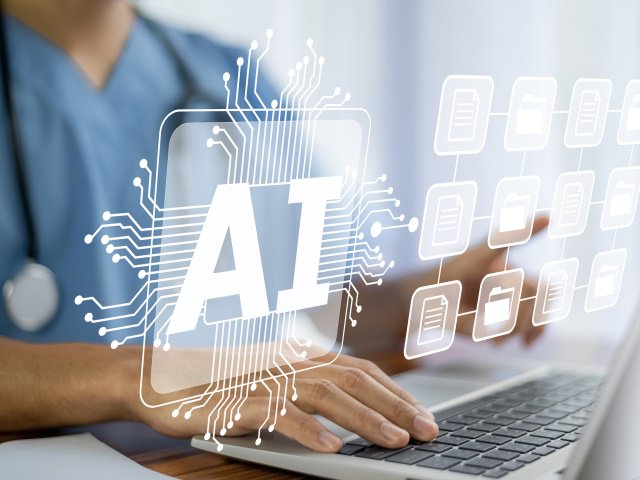
AI in Healthcare
Resources for You

The Future of AI in Healthcare
AI
How many headlines about artificial intelligence (AI) have you seen today? Is this your fifth? Your 10th? Well, don’t expect it to slow down anytime soon. As you know, the developments taking place now are only the beginning.
Whether you are interested in AI’s possibilities or have concerns about privacy and replacing human jobs, this article discusses leveraging this technology for something we can all rally behind: the betterment of healthcare for all.
Administrative Capabilities of AI
According to a report by Citigroup, the healthcare industry is in desperate need of administrative help.
A staggering 90% of clinicians agree that the added workload of administrative tasks is a significant contributor to healthcare worker burnout, and 36% say they spend more than half their work time handling those tedious matters.
However, we should expect to see improvement as AI usage for these tasks becomes more common.
Here is how AI is being used to help right now:
- Billing processes
- Appointment scheduling
- Record-keeping
- Answering patient inquiries
- Claims processing
As these AI tools continue to improve and become more integrated, U.S. healthcare could save 25%–30% on administrative spending and give healthcare workers some relief from a major burden.
The Future of AI in Healthcare
The AI utilization discussed above is a common trend in other industries for similar, manageable tasks. But what about actual healthcare? You may be surprised at the advancements and curious to hear about what’s coming.
Analyzing Radiology for Diagnosis
AI tools can examine images and scans to assist clinicians in diagnosing diseases. The National Institutes of Health (NIH) states that algorithms already outperform radiologists at spotting malignant tumors.
Personalized Medicine
According to Forbes, AI data analysis can one day enable the industry to personalize medicine. These tools can reveal data trends — found in patient genetic information, clinical history and lifestyle factors — to help clinicians create personalized treatment plans.
Drug Discovery
AI tools can accelerate the research, clinical trials and development of new medications. Professionals can run simulations with these programs to predict drug efficacy and patient interaction. They can also find new uses for older drugs.
Patient Risk Identification
AI tools can examine historical patient data and assist clinicians with identifying at-risk patients, including highlighting those who have an increased chance of returning to the hospital soon. Many solutions are being developed to present data based on a patient’s electronic record and wearable devices and sensors.
Predicative Analytics for Public Health
Another way AI’s data analytic capabilities can be utilized is to predict disease outbreaks. Some professionals do this by programming these tools to scan patient data and environmental factors.
Primary Care and Telemedicine
Some organizations are developing direct-to-patient telemedicine platforms to provide remote consultations to patients regardless of location. This is especially helpful to people who live in underserved areas, have disabilities, are older in age, lack adequate transportation and take care of young children at home.
Surgical Assistance
AI-powered robots can assist surgical procedures in stabilizing movements, providing real-time feedback, helping avoid obstacles, warning of potential complications and more.
Cedars-Sinai Progressions
The following list contains AI capabilities that one of the top hospitals in the nation is currently adopting in their research and clinical programs:
- Identifying the earliest signs of pancreatic cancer
- Predicting cardiac arrest and heart attacks
- Using computer models of individual brain cells to understand brain function and neurological disorders
- Identifying genetic predictors of Alzheimer’s risk
- Providing information about lifestyle changes and treatments for cirrhosis and liver cancer
- Predicting the need for C-sections and helping make informed decisions before and during the process
- Helping spine surgery patients manage pain and successfully recover
- Diagnosing the severity of COVID-19
The National Institutes of Health (NIH) says it will be many years before AI replaces humans for broad medical practices and that there are a handful of barriers to rapid implementation. Regardless of the timing, these developments are exciting and indicate a bright future in healthcare.
Did you find this article interesting? Visit the American Independent Business Coalition online at aibcoalition.com for more content like this!
Return